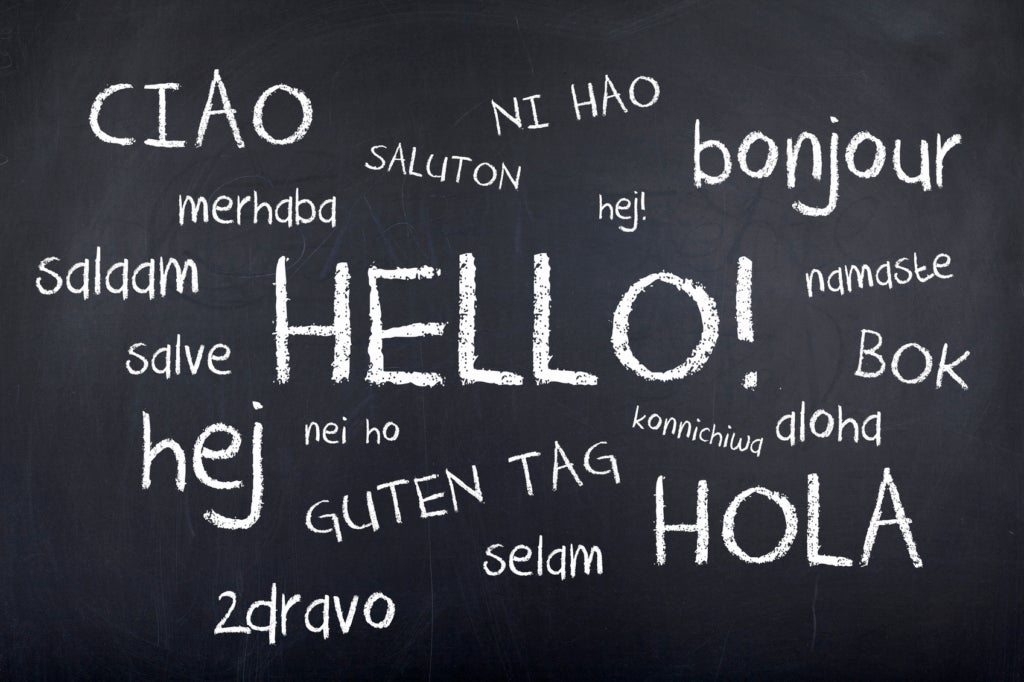
(Photo Credit: istockphoto)
Christopher Livaccari is an educator who is currently Chinese program director and elementary school principal at International School of the Peninsula and the senior advisor for China Learning Initiatives at Asia Society. He spoke at the Aspen Ideas Festival on July 1st, on a panel called “You Can Learn Anything—Mandarin Chinese!”
We caught up with Livaccari to learn more about the advantages of a multilingual mind.
It’s time to put utilitarian arguments for the value of learning another language to rest.
The argument that the world speaks English, and that English will remain the “lingua franca” for business, culture, and education for the foreseeable future is a fairly compelling one. This argument is so compelling to most people making decisions about schooling in the United States that world languages are called “foreign” languages, and relegated to second-class citizenship in schools and institutions of higher learning.
What’s more important to consider, however, is the fundamental value of being able to see things from different linguistic and cultural perspectives, and to consider a variety of strategies for communication, persuasion, and interaction. People in Europe, China, India, and most of the rest of the world tend to grow up multilingual.
Indeed, for most of the world, “monolingualism” is the exception and not the rule, as we seem to believe in the Anglophone world. The global dominance of English means that Anglophones have little incentive to learn other languages deeply. The unfortunate result of this is that our children end up missing a core element of a comprehensive education.
There is a growing body of research that provides compelling evidence that bilingual and multilingual individuals have cognitive advantages over monolingual people. In fact, the psychologist Ellen Bialystok has even completed studies showing that bilingual brains have a stronger ability to delay the onset of Alzheimer’s and dementia than monolingual brains. In addition to these cognitive factors, being able to communicate in multiple languages improves one’s mental flexibility, executive function, and ability to see and understand things from different perspectives — which are key skills in a rapidly globalizing and constantly changing world.
Most Americans seem to think that the value of speaking French, Spanish, or Arabic is having the capacity to order in a restaurant or ask for directions. What’s lacking in such a pragmatic approach is an appreciation of the broader cognitive and academic benefits of being multilingual. Educators for years have been trying to encourage their students to think like mathematicians and historians — it’s now time to get them thinking like linguists and diplomats.
It’s never too late to start on one’s linguistic journey, and it doesn’t really matter how you perform on tests of language proficiency. In approaching a new language, it’s best to start with an appreciation, both aesthetic and scientific, of the special qualities of that language — the core “DNA” that determines the way the language organizes its sentences, the palette of sounds with which its speakers paint the world, and the peculiar range of expressions and words that create its universe of meaning.
In order to learn another language well, you need to do more than just understand its vocabulary and grammar. You need to tune in to its unique music — the rhythms, sonorities, and tones that make up its core. Communicating in another language is effectively learning to improvise in its particular “musical” idiom — just Hindi, Arabic, or Amharic instead of classical, jazz, or rock.
The power of the multilingual mind is its ability to improvise in these different styles, to switch back and forth, and to select from among a range of possibilities for communication and problem solving. It is its ability to read, interpret, and experience the world from a variety of perspectives.

